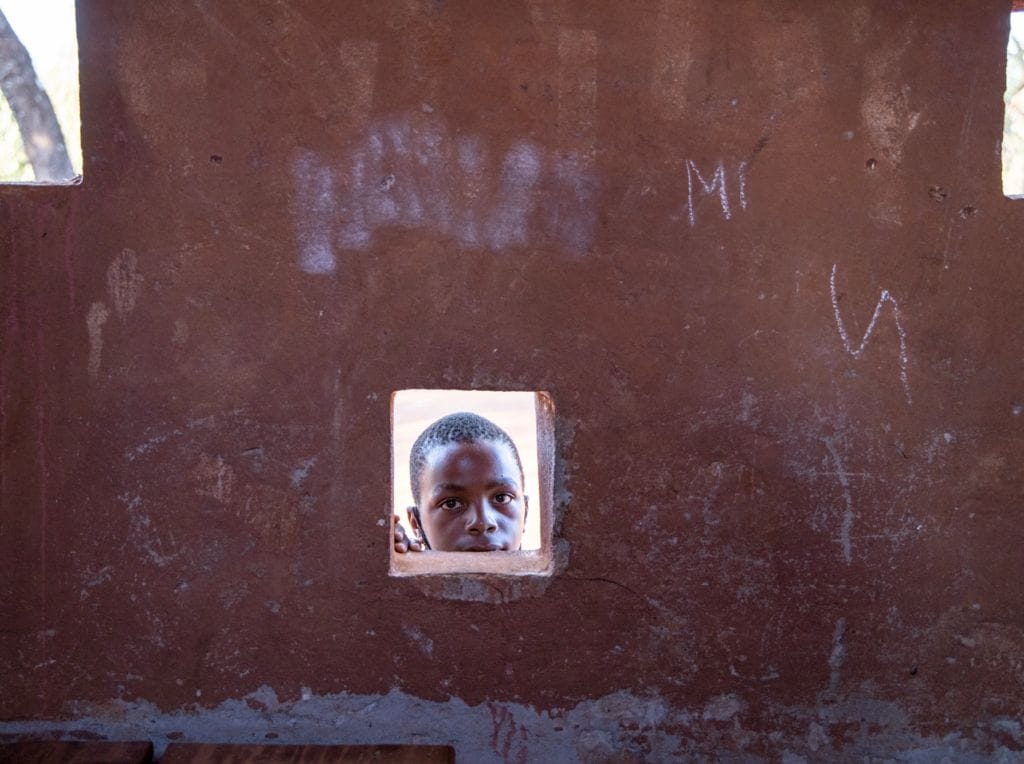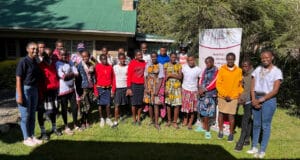
Since 2017 the region of Cabo Delgado, in the north of Mozambique, has been the scenery of a harsh armed conflict that has generated an environment of insecurity and fear among the affected population.
The region has suffered for years from radicated internal conflicts connected to ethnical, religious issues, and to inequalities associated to poorly-managed political and economical powers. Their causes are still uncertain and confused: among them we highlight ridical islamism and economic interests tied to the biggest reserve of natural gas that has been discovered in the last few years.
The war in Cabo Delgado has destabilized an entire region and its population.
Hundreds of theousands of people had to leave their homes abruptly, leaving their belongings and villages behind, in order to reach a safe place where to seek refuge, far from the flames, the beheadings, and the attacks.
The City of Pemba is the biggest point of arrival and the majority of internally displaced persons is being hosted in the houses of relatives, friends and acquaintances inside communities that often present structural vulnerabilities. Until March 2021 143,446 new arrivals were counted in a city that in 2017 had 201,846 inhabitants. Facing this massive influx of people, hosting communities endure a strong pressure on the resources, the infrastructures, and the already precarious services. Considering the scale of the emergency – until today IDPs are about 800,000 – the humanitarian response has targeted mostly the satisfaction of the primary needs of the population fleeing from the conflict. For this reason, this disparity in the access to aid may be the cause for concern among the local population and stimulate the diffusion of discord between the first and the newly arrived. Lastly, there is still a consistent gap of information on the real perception of the hosting communities with regard to the new ethnical and sociodemographical conformation of the city.
WeWorld-GVC has been present in Cabo Delgado since 2013 with projects targeting the areas of education, livelihood and social cohesion, and it works to respond to the needs of the populations who were affected directly and indirectly by the conflict.
The survey “CABO DELGADO: PEACE, SOCIAL COHESION AND CONFLICT MANAGEMENT AMONG HOSTING COMMUNITIES IN THE CITY OF PEMBA” aims to be a reflection point of departure in order to improve the humanitarian and governmental agencies’ interventions.
(Portuguese version below)
À procura da paz em Cabo Delgado
Desde 2017 a região de Cabo Delgado, no norte de Moçambique, tem sido palco do um conflito armado feroz que criou um clima de insegurança e medo nas populações afetadas.
A região vem sofrendo há anos por causa de conflitos internos enraizados conexos à questões étnicas, religiosas e desigualdades associadas à poderes políticos e econômicos mal geridos. As causas são ainda incertas e confusas: entre elas têm o islamismo radical e interesses econômicos ligados à maior reserva de gás natural que foi descuberta nos últimos anos.
A guerra em Cabo Delgado destabilizou uma região inteira e a sua população.
Centenas de milhares de pessoas tiveram que deixar de repente as suas casas, deixando seus bens e suas aldeias para trás, para alcançar um lugar seguro onde se estabelecer longe das chamas, das decapitações e dos ataques.
A Cidade de Pemba é o maior centro de chegada e a maior parte dos deslocados internos é hospedado nas casas de familiares, amigos e conhecidos, dentro de comunidades que muitas vezes apresentam vulnerabilidades estruturais. Até março de 2021 foram contabilizadas 143.446 chegadas numa cidade que em 2017 tinha 201.846 habitantes. Frente à este fluxo maciço de pessoas, as comunidades acolhedoras sofrem uma forte pressão sobre os recursos disponíveis, sobre as infraestruturas e sobre os serviços que já se encontravam numa situação precária. Considerada a escala da emergência – atualmente os deslocados internos são acerca de 800.000 – a resposta humanitária foi principalmente direcionada à satisfazer as necessidades primárias da população que foge do conflito e esta disparidade no accesso às ajudas poderia causar mal-estar dentro da população local e fomentar o surgimento de discórdias entre ela e os recém-chegados. Enfim, há ainda uma grande falta de informações sobre a real percepção das comunidades acolhedoras com respeito à nova conformação étnica e sociodemográfica das cidades.
WeWorld-GVC está presente em Cabo Delgado desde 2013 com projetos de educação, subsistência (livelihood) e coesão social e trabalha para responder às necessidades das populações afetadas diretamente e indiretamente pelo conflito.
O inquérito “CABO DELGADO: PAZ COESÃO SOCIAL E GESTÃO DE CONFLICTOS NAS COMUNIDADES DE ACOLHIMENTO DA CIDADE DE PEMBA” quer ser um ponto de reflexão à partir do qual será possível amelhorar as intervenções das agências humanitárias e governamentais.



